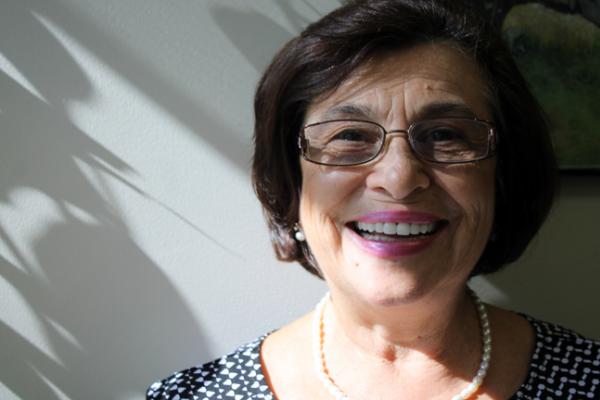Currently, 78 nations worldwide criminalize same-sex relations; of those, seven may impose the death penalty for consensual same-sex conduct, according to ORAM. In Uganda, for instance, where there has been capital punishment for homosexual activity in the past, homosexuality currently is considered a criminal act punishable by a 14-year prison sentence.
At a recent JFCS-East Bay staff meeting, Weiss, director of refugee and immigrant services, recounted the story of a recent LGBT refugee arrival that brought many staff members to tears.
"One person who I had the honor to pick up at the airport and witness his experience and his mind was blown," Weiss began. "He went from having nothing — nobody to help him, in fear for his life, 23 years old (my daughter’s age) — having to flee barefoot, climb over a fence, escape prison, run for his life, police find him at his cousin’s house, re-arrest him … the story is just incredible. Multiple times fleeing on foot with no money, no water. Being in a refugee camp. Being beat up by a group of Somali men in the refugee camp that was supposed to be his refuge.
"Being physically and of course emotionally traumatized. And then getting on a plane — not knowing where he was going until he’s about to travel and then finding out he’s going to San Francisco," she continued. "On the way to the airport, we had this wonderful Iraqi LGBT volunteer who came five years ago as a refugee himself and he says to me, five minutes before the [new] guy arrives, ‘I’m five years old; I was born when I came down that escalator five years ago and this guy is about to be born.
"And down the escalator comes this jet black African guy who is obviously very gay — in the way you can tell by his escalator ride," she said, drawing knowing laughter from the staff, some of whom are LGBT themselves. "He couldn’t hide it. That’s why his life was in danger. On the way back from the airport, our volunteer says that after we drop him off, he’s going to The Castro, and [the new guy] says, ‘Can I come with you?!’
"It’s really just remarkable to witness his journey from hell to heaven," Weiss said.
Read the Full Article

